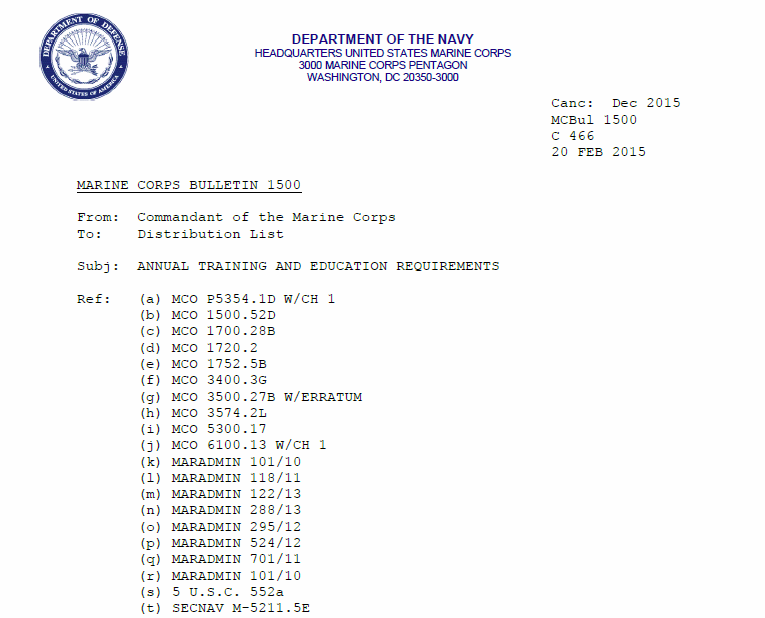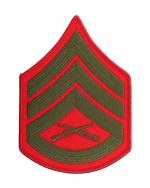ON 20 Feb 2015 HQMC released an extensive update to the MCBULL 1500. The true impact for these changes will most likely be most evident in the Marine Corps Reserve. For reserve unit commanders and training chiefs the changes will possibly make attaining readiness in accordance with policy actually doable. The big highlights are below:
Swim Qual:
To be determined by the first general officer in the chain of command.
We will have to wait and see what the reserve CGs decide on this one, but the implications may be huge, begin that even the most basic training evolution can consume one full day in the training calendar. Changing this requirement to only pre-deployment or MOS specific could free up a large percentage of annual training time.
Gas Chamber:
Reserve component: At least 6 months prior to deployment
This change effectively removes CBRN training from the annual training calender, and moves it to ILOC or some other pre deployment training regiment. This change will also free up a half to full day in the annual calendar, and if the current standards are followed to the letter of the policy could free up 2 full days or more.
Classroom time changes:
Two Semper Fit course requirements have been removed completely. As well as Domestic Violence, Combat Stress, Substance Abuse, Suicide Prevention, and Family Advocacy have been rolled into one program, which no longer has a powerpoint/classroom requirement. This change can easily alleviate a full day of training, and possibly the most negative retention component in the annual training plan. There will still be classroom time requirements, but the drastic reduction in repetitive courses should make incremental training possible to plan and prevent the all day powerpoint exercises.
Altogether the annual training calendar requirements have been possibly reduced by 23 instruction hours. Which is almost 8 drill periods or 2 complete drill weekends. These simple changes and reductions in redundancies should make it more possible to meet training standards without cutting corners, and may actually increase retention.



